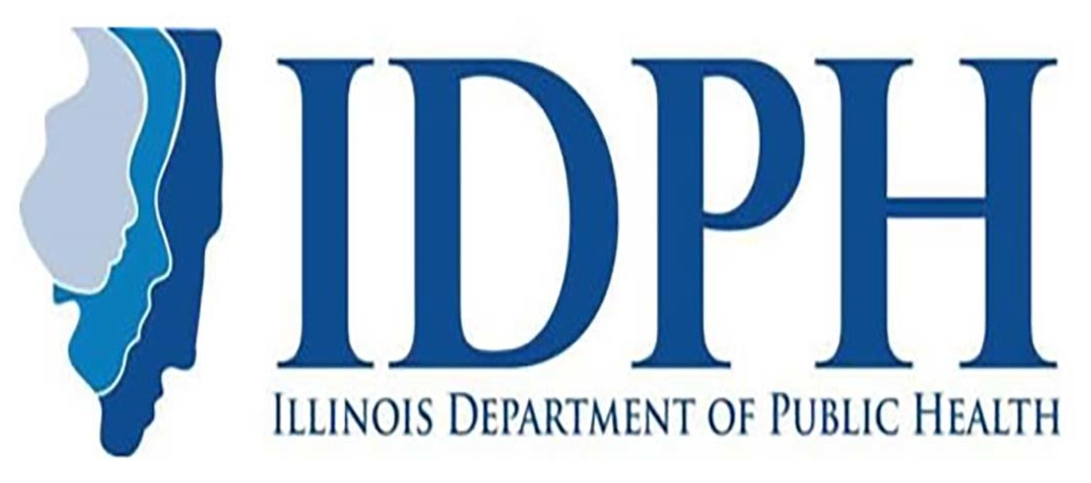IDPH adopting updated CDC guidelines: Schools to be fully open, unvaccinated students should wear masks

Nikki Buehler was happy Friday to finally hear news out of Springfield.
The Illinois Department of Public Health issued a press release Friday, stating that it is fully adopting the Centers for Disease Control and Prevention updated guidance for COVID-19 prevention in K-12 schools that also was released Friday.
The updated school guidance now aligns with guidance for fully vaccinated people, which allows activities to resume for fully vaccinated people without wearing a mask except where required by federal, state, and local rules and regulations. Young students should continue to wear masks, the CDC said.
“I am thrilled to see some movement in the changing of guidelines from the CDC and the IDPH,” said Buehler, a parent of a Central student and a member of We Stand for Students, a community group concerned about parent choice regarding mask options.
“Our goal is to protect the health of students, teachers, and staff so in-person learning can resume as safely as possible,” IDPH Director Dr. Ngozi Ezike said in the release. “The CDC is right. Vaccination is the best preventive strategy. As school board members, parents, teachers and superintendents plan for a return to in-person learning in the fall, we strongly encourage those who are not vaccinated to continue to mask. IDPH is proud to fully adopt school guidance issued by CDC, which is based on the latest scientific information about COVID-19.”
Remote instruction must be available for students without vaccine
The CDC’s new guidance comes as two-thirds of U.S. adults — and most teachers — are at least partially vaccinated. COVID infection rates have dwindled. However, vaccination rates remain low in large parts of the country, and children under 12 are ineligible to receive a vaccine.
Major elements of the updated guidance are:
- Masks should be worn indoors by all individuals (age 2 and older) who are not fully vaccinated.
- CDC recommends schools maintain at least 3 feet of physical distance between students within classrooms, combined with indoor mask wearing by people who are not fully vaccinated, to reduce transmission risk. When it is not possible to maintain a physical distance of at least 3 feet, such as when schools cannot fully re-open while maintaining these distances, it is especially important to layer multiple other prevention strategies, such as indoor masking.
- Screening testing, ventilation, handwashing and respiratory etiquette, staying home when sick and getting tested, contact tracing in combination with quarantine and isolation, and cleaning and disinfection also are important layers of prevention to keep schools safe.
- Many schools serve children under the age of 12 who are not eligible for vaccination at this time. Therefore, this guidance emphasizes implementing layered prevention strategies (masking, distancing, testing) to protect people who are not fully vaccinated.
The guidance also noted that schools and communities should monitor community transmission of COVID-19, vaccination coverage, screening testing and outbreaks to guide decisions about the level of layered prevention strategies being implemented.
State Superintendent of Education Carmen I. Ayala said all schools must resume fully in-person learning while making available remote instruction for students who have not received a COVID-19 vaccine or who are not eligible for a COVID-19 vaccine.
“All our students deserve to return safely in-person to schools this fall,” Ayala said in the press release. “With vaccination rates continually rising and unprecedented federal funding to support safe in-person learning, and mitigations such as contact tracing and increased ventilation in place in schools, we are fully confident in the safety of in-person learning this fall.”
Webb: QPS to take ‘tactical pause’ before publishing guidance
Quincy Superintendent Roy Webb said school officials will review all the documents that came out Friday.
“QPS will take a bit of a tactical pause, read the CDC and IDPH guidance carefully and listen to interpretations by the ISBE,” Webb said in an emailed comment. “We are confident we will be able to draft and publish our guidance soon.”
School districts have been waiting for guidance from the Illinois State Board of Education and Illinois Department of Public Health for the coming school year.
“Dr. Ezike very clearly states that local school boards and superintendents should be planning for their schools,” Buehler said. “Local control was one obstacle our school board had faced, but now that the IDPH says they have the ability to make decisions for our schools, we are hopeful.
“Our board and superintendent should take our county’s low positivity rate and the fact that our kids haven’t worn masks all summer into account when they make decisions for how our 2021-22 school year will move forward.”
The Central School Board took no vote about a mask optional policy for the beginning of the 2021-22 school year when it met for a special meeting Wednesday.
“That was very surprising,” Buehler said. “We really anticipated at least knowing one way or the other where (School Board members) stand on these issues. It was really disappointing, to be honest with you. I would have been satisfied had they just made a decision and let us know where they stand.”
Jason Ippensen, president of the Central School Board, did not respond to a text message and a phone message for an interview request.
LUDA schools sent letter demanding state to publish guidelines
Buehler wants the issue to be addressed again when the Central School Board meets for its regularly scheduled meeting on July 15.
Chalkbeat, a nonprofit news organization reporting about education issues in America, recently reported that Illinois’ Large Unit District Association, which represents 52 of the state’s largest districts (including Quincy), sent the ISBE a letter in late June demanding the state publish health guidelines for schools to coincide with the governor’s Phase 5 reopening.
The ISBE passed a resolution in May requiring school districts to reopen in the fall with limited exceptions for remote learning. School districts must operate at full capacity, so the letter raised concerns about social distancing, masks and quarantining students who have or are exposed to COVID-19.
“Under the 6-feet social distancing guidelines, it is impossible for most of our schools to operate at 100 percent capacity, “ said the letter. “Using 3-feet social distancing guidelines, full capacity is possible in most cases, but only with significant modifications.”
LUDA wrote that continuing to practice social distancing is “impossible for most of our schools to operate at 100 percent capacity.”
Buehler said Central School Board members were concerned about personal liability and the loss of state funding if they did not enforce previous state mandates.
Other schools in Illinois have voted to go mask optional
The Warsaw School Board, acting against a recommendation from Superintendent Bob Gound, voted in June to make masks optional in direct opposition to state mandates tied to COVID-19.
“Warsaw reached out to their Regional Office of Education superintendent, who said that any change from the ISBE would take well over a year and probably three years as far as a change in status or loss of funding, anything like that,” Buehler said. “It’s not like if we vote to go mask optional today that the ISBE is going to come in tomorrow and close our doors. That’s not going to happen.”
The Red Hill School Board in Bridgeport, Ill., recently voted to relax its mask policy for the 2021-22 school year. The Center Square, a Chicago-based website that focuses on state- and local-level government and economic reporting, received a copy of a letter from the ISBE to Red Hill on June 23 stating it was lowering Red Hill’s recognition status … “to ‘on probation’’ for exhibiting deficiencies that present a health hazard or a danger to students or staff.” The ISBE gave Red Hill a hearing date for July 8, but that meeting was cancelled.
State law says after a year of probation, if a school doesn’t comply with the state, the actions the state could take include ordering new school board elections, removing the principal and faculty members and closing of the school.
Buehler said school boards at Legacy Christian Academy, Patoka, Flanagan-Cornell, Elmhurst Timothy Christian, Jasper County and Hutsonville also have voted to go mask optional in 2021-22.
House Bill 2789, which would allow the state to close public and nonpublic schools for not complying with COVID-19 protocols, passed the House in the late-night hours in April. However, it did not advance in the Senate.
Miss Clipping Out Stories to Save for Later?
Click the Purchase Story button below to order a print of this story. We will print it for you on matte photo paper to keep forever.

